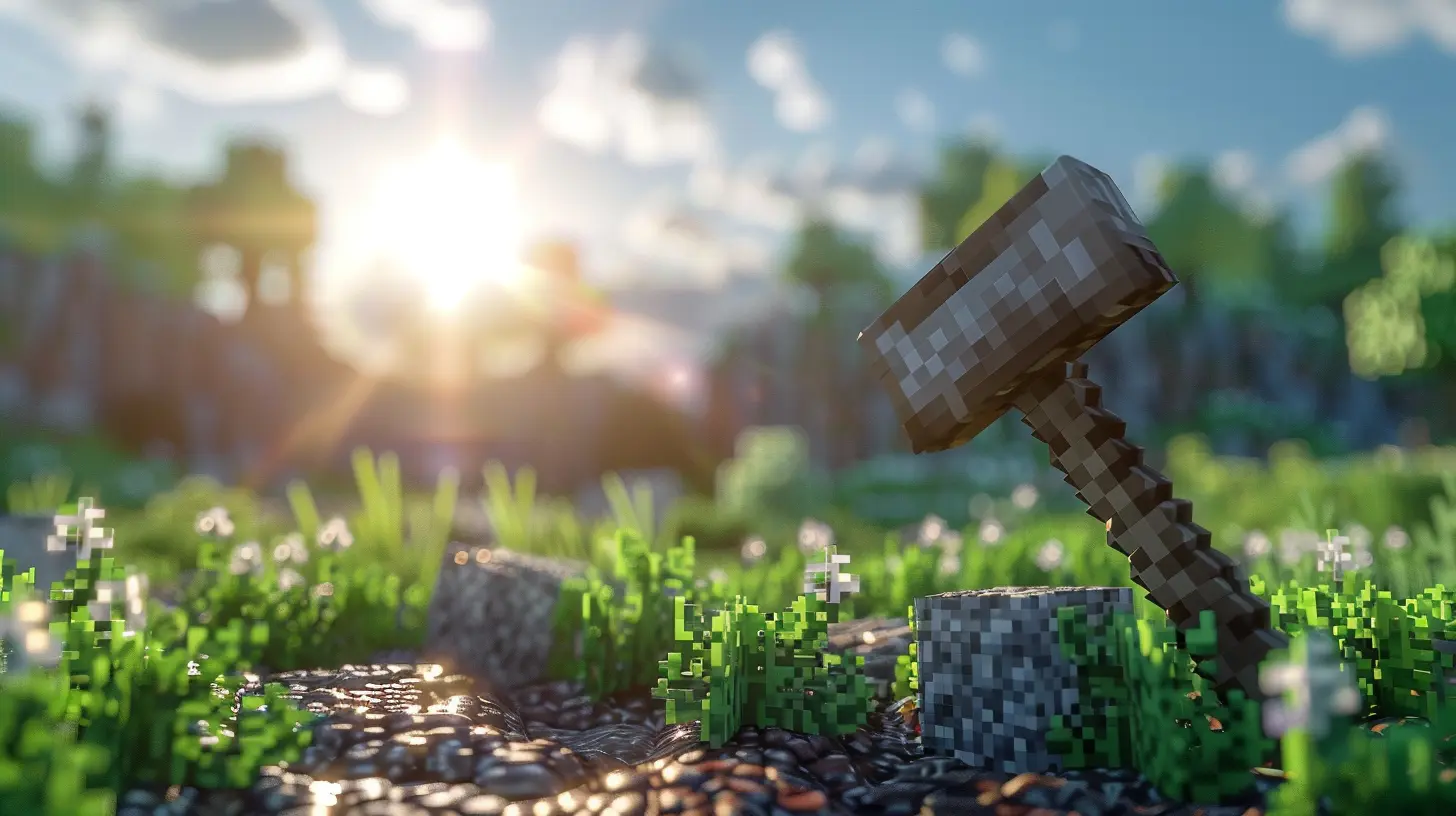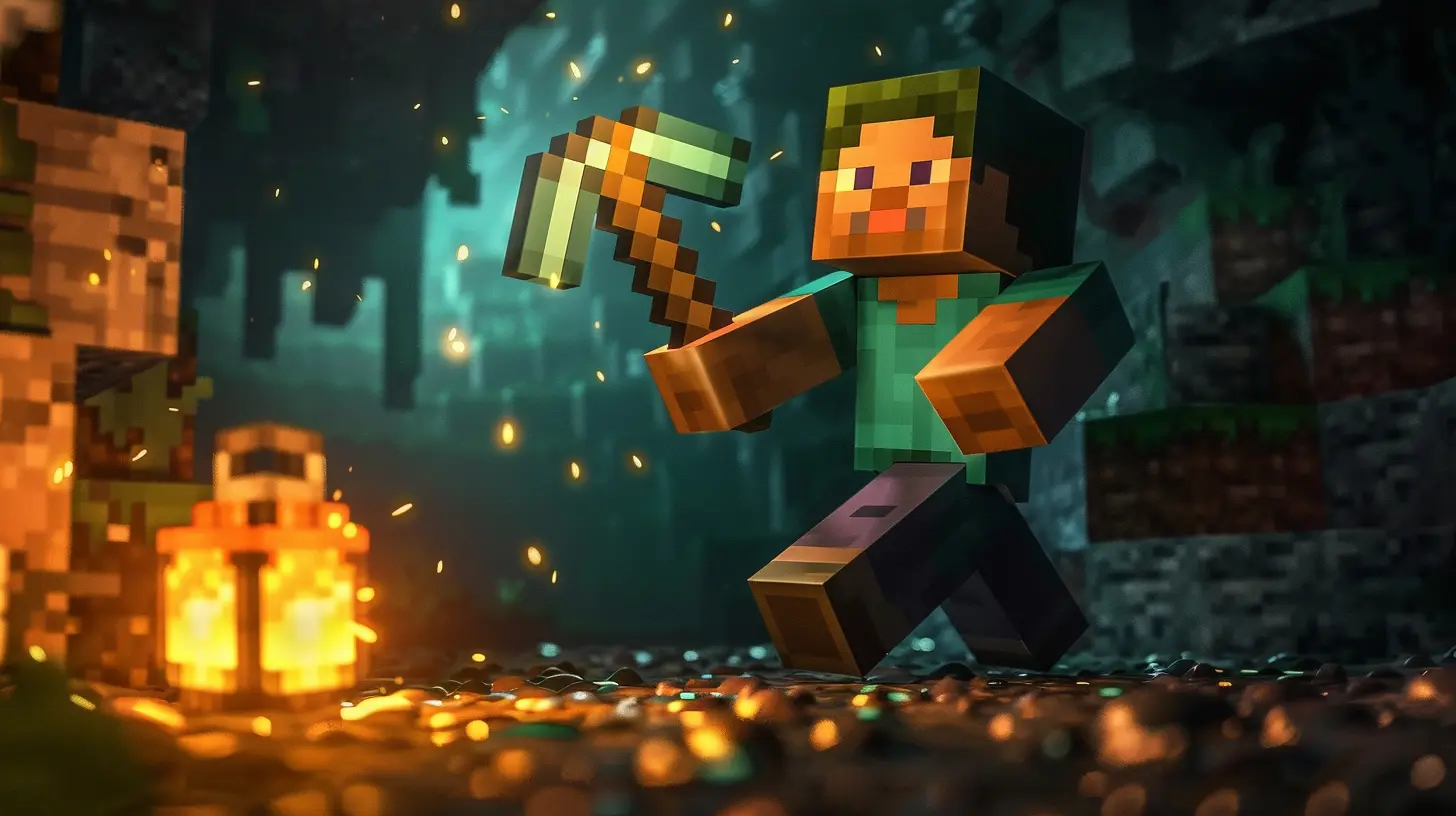Crafting Essentials Every Survival Gamer Should Know
25 July 2025
Let’s face it—when it comes to survival games, crafting isn’t just some optional feature; it’s the backbone of your journey. Without crafting, you’d be stuck punching trees and staring at a blank inventory screen. Whether you’re holed up in a zombie apocalypse, weathering a post-nuclear wasteland, or braving the harsh wilderness, knowing what to craft and how to do it can mean the difference between thriving and barely scraping by.
In this article, we’re diving into the crafting essentials that every survival gamer needs to know. So grab your virtual backpack and let’s get to work!
Why Crafting Matters in Survival Games
Before we dive into the must-haves, let’s take a second to appreciate why crafting is so critical in survival games. Most survival games throw you into a world where resources are scarce, threats are constant, and the only way to survive is to get creative.Crafting turns the mundane into the magnificent. That random pile of sticks? Voilà—a sturdy spear. Those useless scraps of cloth? Bam—life-saving bandages. Without crafting, you'd be no more than a wandering scavenger, hoping to stumble upon the perfect gear rather than building it yourself.
But beyond survival, crafting is about empowerment. It gives you control to adapt, build, and thrive even in the harshest environments. Plus, let’s be real—there’s nothing more satisfying than creating a masterpiece from junk you found lying around!
The Top Crafting Essentials You Must Master
Not all crafting recipes are created equal. Some are game-changers, while others? Well, let’s just say that glittering gold armor is better left for the flex on multiplayer servers. Here’s a breakdown of the essentials you must know.1. Tools: Your Survival Sidekicks
You can’t talk about crafting without mentioning tools. Tools are like your extra set of hands—they make survival easier, faster, and less painful (you know, because smashing rocks with your bare fists isn’t exactly ideal).- Stone Axe and Pickaxe: In most games, these are your bread and butter. Whether you’re chopping wood, mining ore, or defending yourself from an aggressive boar, these tools are the first step to progression.
- Knife or Spear: For hunting, self-defense, or even basic crafting, these are indispensable. Bonus points if you can upgrade to metal versions later.
- Hammer: Essential for building structures and repairing gear. Think of it as your survival handyman's badge.
Pro Tip: Prioritize tools that increase your efficiency. Faster gathering = more loot = better survival odds.
2. Weapons: Stay Armed and Dangerous
Let’s be real, survival games aren’t just about harvesting berries and building cozy log cabins. At some point, you’re going to have to defend yourself. Whether it’s against hostile creatures, rival players, or just the elements, having the right weapon is a must.- Bows and Arrows: Great for hunting and long-range combat. Often easy to craft early-game (hello, sticks and string!) and can save your life if you’re low on health and need to keep your distance.
- Spears: Versatile and some even double as fishing tools! What’s not to love?
- Firearms (if the game allows it): Guns might be harder to craft, but they offer a huge advantage in combat. Once you've stockpiled gunpowder and metal scraps, you’re officially a force to be reckoned with.
Pro Tip: Never rely on just one weapon. Always carry a backup, just in case your primary weapon breaks mid-battle.
3. Shelter: Your Home Away From Home
A shelter isn’t just about keeping the rain off your head; it’s about security. It’s a place to store your stuff, recover health, and avoid the dangers lurking in the dark.- Basic Huts: If you’re just starting out, a hut made of wood or thatch will do. It won’t withstand a full-on attack, but it’ll keep you safer than sleeping under the stars.
- Defensive Structures: Once you’re more established, consider walls, trenches, or even traps around your base to deter enemies.
- Storage Solutions: Secure storage like chests or cabinets is a must. After all, you don’t want that hard-earned loot to despawn, right?
Pro Tip: Location matters! Build your shelter near resources but away from danger zones (looking at you, zombie spawning areas).
4. Food and Water: The Basics You Can’t Ignore
No matter how cool your weapons are, starvation or dehydration will end your journey faster than you can say “game over.” Crafting tools and supplies for food and water is non-negotiable.- Campfire or Cooking Pit: This is your first step toward edible meals. Raw meat is great… unless your game penalizes you with food poisoning.
- Fishing Rods or Traps: Reliable ways to secure food when other resources are scarce.
- Water Purifier or Containers: Dirty water might keep you alive temporarily, but clean water ensures long-term survival. Always have a way to collect and purify water.
Pro Tip: Stockpile food and water whenever you can. Power outages in real life and sudden famine in games both feel the same—stressful.
5. Clothing and Armor: Suit Up!
Survival isn’t just about dodging enemies; sometimes the environment itself is out to get you. Whether you’re freezing to death in a tundra or braving the scorching desert heat, clothing and armor are critical.- Basic Cloth Armor: Usually the easiest to craft and provides minor stat boosts.
- Leather or Metal Armor: As you progress, upgrade to stronger materials for increased durability and damage resistance.
- Environmental Protection Gear: Some games require specialized clothing (gas masks, hazmat suits, etc.) for certain biomes or challenges.
Pro Tip: Don’t overlook utility clothing like backpacks or belts—they increase carrying capacity and make looting a breeze.
Mastering the Art of Resource Management
Okay, so you know what to craft. But let’s talk about the how. Crafting isn’t just about slapping materials together; it’s about managing your resources wisely. Here’s how to stay on top of your game:1. Prioritize Essentials Over Luxuries
Sure, a golden sword sounds cool, but does it make survival easier? Nope. Focus on the basics first—tools, shelter, food, and safety gear.
2. Keep Resources Organized
Treat your inventory like a Tetris game. Group materials together so you’re never fumbling around during a crisis. Chests labeled by category (wood, stone, food, etc.) can save loads of time.
3. Recycle and Reuse
Some games let you break down old gear into materials. Don’t let that rusty sword clog your inventory—turn it into something useful!
4. Scout Before You Build
Wasting resources on a poorly-placed shelter isn’t fun. Take time to explore the map and find the perfect spot.
Advanced Crafting Tips for Pros
Feeling confident? Here are some advanced crafting strategies to take your game to the next level:- Blueprints and Recipes: Scout for rare blueprints. They often unlock crafting for high-tier items.
- Automation: In games like Minecraft or ARK, automated crafting stations or machinery can save you time and effort.
- Trading: If your game allows multiplayer, trade crafted goods for resources you’re short on. It’s a win-win!
Wrapping Up: Crafting Your Way to Success
Crafting in survival games is like cooking in the real world—you start with basic recipes, but as you experiment, you create masterpieces. Every successful survival story begins with crafting the essentials and learning to adapt. From tools to shelter, and food to armor, mastering these fundamentals will ensure you’re always one step ahead of the game’s challenges.So, the next time you’re dropped into a brutal survival world, don’t panic. Take a deep breath, gather your resources, and craft your future—literally!
all images in this post were generated using AI tools
Category:
Survival GamesAuthor:

Tina Fisher
Discussion
rate this article
2 comments
Pamela Conrad
“Why did the survival gamer bring a spoon to the crafting table? Because sometimes, you just need to stir up some trouble! 🍲🔨”
December 15, 2025 at 4:28 PM

Tina Fisher
Great pun! A spoon might not be a traditional tool, but creativity is key in survival gaming!
Marcus McGillivray
Great article! Crafting is such a crucial part of survival games, and it's awesome to see a list of essentials that can make or break your experience. I especially love the tips on resource management—definitely a game-changer! Can’t wait to put these into practice in my next adventure!
July 30, 2025 at 2:48 AM

Tina Fisher
Thank you! I'm glad you found the tips helpful. Happy crafting on your next adventure!


